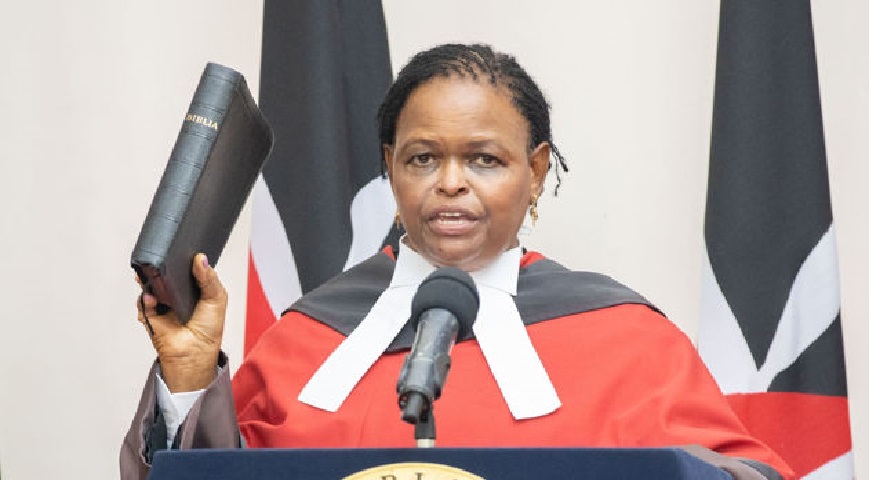Chief Justice Martha Koome has strongly denied recent allegations of corruption and incompetence within the judiciary, reaffirming her steadfast commitment to upholding integrity and justice.
In an exclusive interview with BBC Africa Daily, the first female Chief Justice of Kenya firmly dismissed claims of bribery within the legal system, stating, “In all these 22 years I’ve been a judge and a chief justice, nobody has ever approached me with a bribe. I would have them arrested.”
Justice Koome’s remarks come amidst a rising tide of accusations suggesting that she has failed to adequately address corruption within the judiciary.
The term “jurispesa”—a portmanteau of jurisprudence and the Swahili word for money, pesa—has surfaced among Kenyans as a way to highlight the alleged graft within the legal framework.
Defending her leadership, Koome urged those making such serious allegations to present substantial evidence to law enforcement or the judicial oversight commission.
Did you read this?
“These claims are supposed to lower my credibility. It is supposed to distract me. I know who I am and I know what I have done and what I am going to do,” she stated. The Chief Justice emphasized her impartiality, insisting that she remains focused on her role and responsibilities.
While Koome faces scrutiny, she has been outspoken about the longstanding issue of sexual and gender-based violence in Kenya.
Recently, police reported a staggering rise in violence against women, revealing that nearly 100 women and girls were killed in just three months. More than 500 women have reportedly been victims of femicide between 2016 and 2024, according to Africa Data Hub.
Referring to the violence against women as “completely disheartening,” Justice Koome highlighted the urgent need for judicial reforms in this area. She lamented the backlog of rape cases pending in courts attributed to a lack of witnesses.
In an ambitious plan to address the crisis, Justice Koome has committed to establishing 11 courts nationwide specializing in sexual and gender-based crimes, with two already inaugurated in Kisumu and Siaya counties.
“We have a lot of hope in them because cases of gender-based violence must be given priority,” she asserted, emphasizing that victims should not endure the trauma of prolonged legal battles.
Koome acknowledges that her position has also drawn criticism rooted in misogyny. “It is total misogyny. It is total chauvinism,” she noted, directing attention to the unique challenges faced by female leaders in the country.
As she navigates the growing pressure and accountability expected from her role, Kenya’s Chief Justice remains steadfast in her mission to implement meaningful change—offering hope to countless victims seeking justice in a system often viewed as faltering under the weight of corruption and gender bias.
Justice Koome’s fight against the dual crises of judicial integrity and gender-based violence reflects a significant chapter in Kenya’s evolving legal landscape, with her leadership poised to shape the future of justice in the nation.









